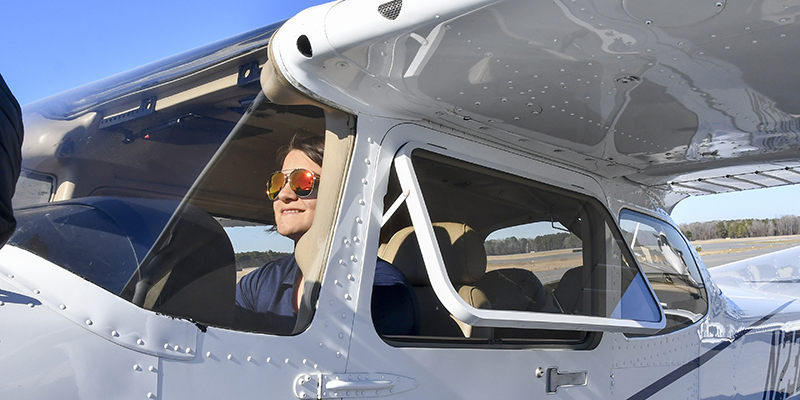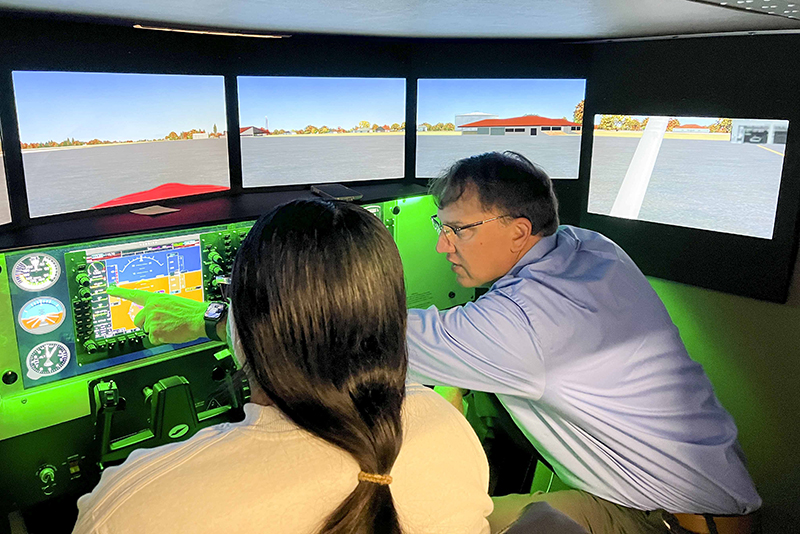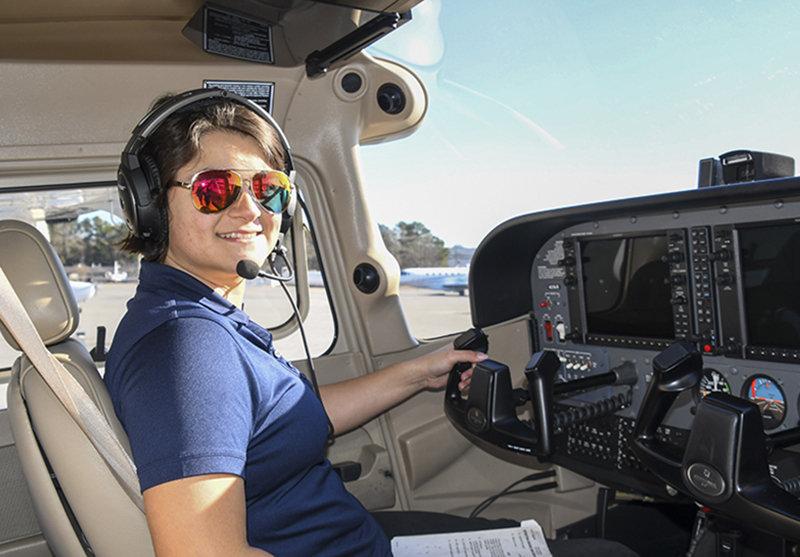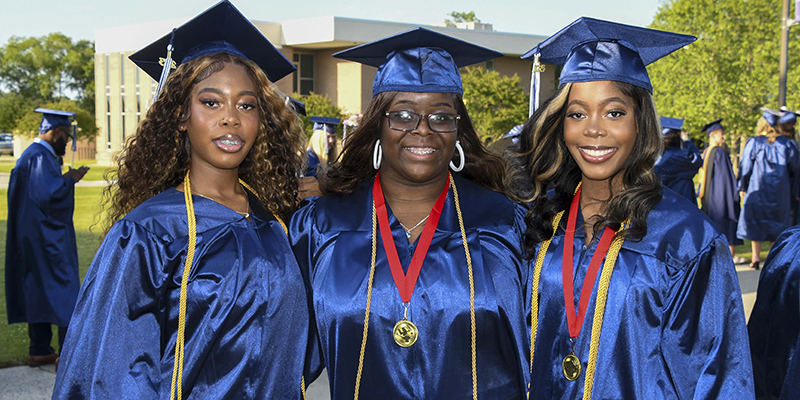
By Richy Huneycutt
There’s never been a better time for your career to take flight with a degree in aviation at Lenoir Community College. Since 1970, LCC’s Aviation Management and Career Pilot Technology Program has been producing skilled airline workers who have found employment worldwide.
Programs currently offered include Aviation Management, Manned Pilot, Pilot Unmanned Aircraft Systems, Career Pilot Manned, Industrial Systems Technology, and Airframe Certification.
The College will soon begin construction of the Aviation Center for Excellence, a state-of-the-art training facility at the NC Global TransPark that will offer aviation-related training and education. The facility will include an aircraft hangar, traditional classrooms, and maintenance laboratories.

“The Center will have a state-of-the-art flight simulator bay, a Redbird full motion simulator, and additional flight training devices,” says Mat Tribula, Director of Aviation Programs. “The Center will feature spaces, technology, and practices to instill the student with the culture of tool control, a skill that is vital in aviation maintenance.”
Tribula says the Aviation Center for Excellence will lead the way in providing accessible and comprehensive educational programs for aspiring aviation professionals. “From pilots to aircraft technicians, these programs offer a pathway into one of the most dynamic industries,” he says. “Students have access to flight simulators, aircraft maintenance labs, and classroom instruction from experienced industry professionals. This hands-on training equips students with the technical skills and knowledge necessary for success in the aviation industry.”
LCC offers affordability and accessibility, making aviation education attainable for a diverse range of students. “The College will be offering 20 ‘ACE scholarships’ for the Fall 2024 class, which includes tuition and fees. It does not include books or flight instruction at this time, but the College will be exploring ways in which we can potentially provide subsidized flight training costs in the future,” says LCC President Dr. Rusty Hunt.
“LCC’s current flight fee structure is already competitive, and we hope to capitalize on additional partnerships to ensure students who desire careers in aviation are not prohibited by costs,” he says. “Apprenticeship opportunities and transfer agreements with four-year institutions for those wanting to pursue a higher degree will be offered as well, which will enhance students’ opportunities for career and higher education advancement.”
Tribula said that students can complete training programs that align with industry standards and requirements. “These certifications not only enhance students’ employability but also demonstrate their competence and readiness for the workforce.”
LCC collaborates with local aviation companies and airports to provide internship and job placement opportunities for students. These partnerships enable students to gain real-world experience and make valuable connections within the industry. “Whether through internships, apprenticeships, or co-op programs, students have the chance to apply their skills in a professional setting and gain insights into various career pathways within aviation,” he says.

In addition to technical training, students learn about aviation safety protocols, crisis management procedures, and ethical standards, ensuring that they are well-prepared to navigate the complexities of the aviation environment.
“I chose a career in aviation because I’ve always been fascinated with airplanes, and I love flying,” says aviation student Kody Boyd of Kinston.
Aviation student Abby Harwick of Bayboro agrees. “Thanks to Lenoir Community College, the sky is no longer the limit.”
LCC will also be implementing the ACE Academy for all high school juniors and seniors. “This is an opportunity for high school students to get a jump on their flying careers by receiving ground instruction and earning college credit through the Private Pilot Essentials Certification Program at no cost to them,” says Tribula. “The Academy opens the door to a two-year degree in aviation through free college while in high school. Solo flights can be conducted as early as 16 years old, and you can earn a Private Pilot License at 17 years old.”
For more information on aviation, visit LCC Aviation Programs.




